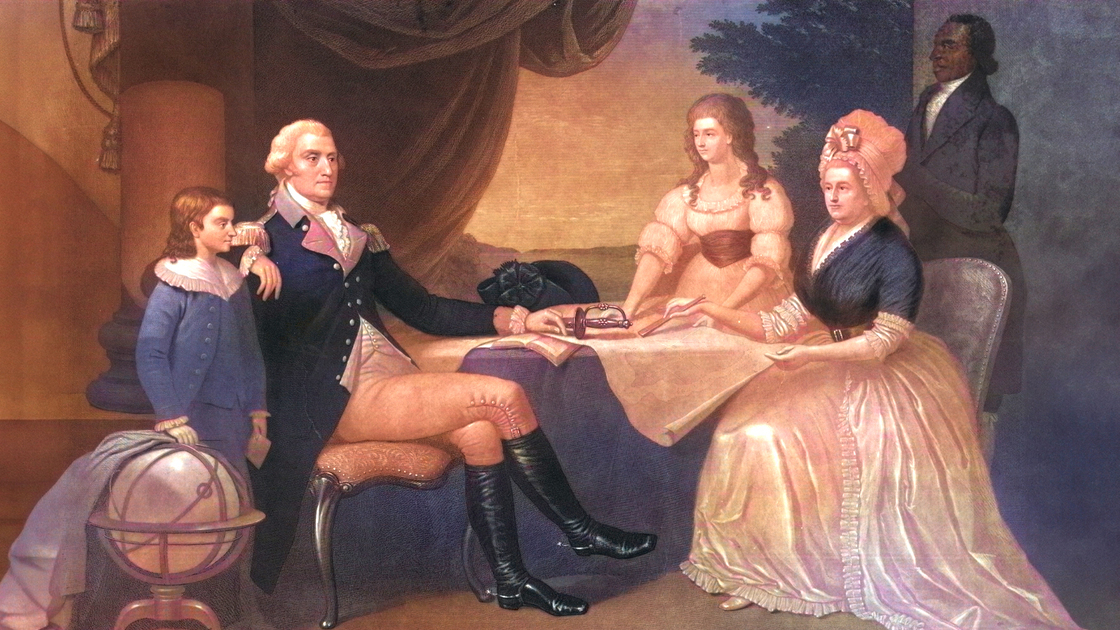
Back in my early 20s, a college professor of mine recommended an amazing book called Our Sacred Honor: The Stories, Letters, Songs, Poems, Speeches, and Hymns that Gave Birth to Our Nation. It was an anthology of letters from the founding fathers organized into seven chapters. Yet one of the most interesting chapters was on “Love and Courtship.” Many wonderful books have been written on the politics of George Washington, Thomas Jefferson, John Adams, Benjamin Franklin, Alexander Hamilton, John Jay and James Madison. But far fewer books delve into these men’s advice on love, infatuation, courtship and marriage.
One noteworthy letter was from George Washington to his step-granddaughter and adopted daughter Eleanor Parke Custis. Written on March 21, 1796, this letter instructs 17-year-old Eleanor on how to deal with romantic attraction. She had boasted to her adopted father that she was immune to such sentiments, so Washington assured her that in “the composition of the human frame there is a good deal of inflaminable matter” which may lay dormant for a great while before bursting into a fiery blaze at any moment. Therefore, it is prudent for all people to learn how to control such passions without letting their heart rule their head.
“Love is said to be an involuntary passion and it is therefore contended that it cannot be resisted,” Washington told Eleanor. “This is true, in part only; for like all things else when nourished and supplied plentifully with aliment, it is rapid in its progress; but let these be withdrawn and it may be stifled in its birth or much stunted in its growth. For example—a woman (the same with the other sex) all beautiful and accomplished will, while her hand and heart are undisposed of may turn the heads, and set the circle in which she moves on fire. Let her marry, and what is the consequence? The madness ceases and all is quiet again: Why? not because there is any diminuation in the charm of the lady but because there is an end of hope. Hence it follows that love may and therefore that it ought to be under the guidance of reason.”
In other words: romantic attraction is similar to fire. As any Boy Scout knows, the three things that fire needs are heat, fuel, and oxygen. It takes an initial spark to set the fuel ablaze, but after that the flame grows or dies depending on whether it is fed with fuel and oxygen.
Romantic attraction is similar. Chemicals in your brain such as dopamine, serotonin, andnorepinephrine help determine if you are initially attracted to someone. Physical appearance and genetics can provide an initial surge of these chemicals, but they can also be generated by emotional and psychological factors, such as common interests and shared values. So Washington was right. Attraction is in part an involuntary passion, but it can be “nourished” by behaviors that build attraction or “much stunted in its growth” by behaviors that destroy it.
With these facts in mind, Washington advised Eleanor to ask herself several questions before she let a relationship with someone she was attracted to proceed too far.
“When the fire is beginning to kindle, and your heart growing warm, propound these questions to it,” he wrote. “Who is this invader? Have I competent knowledge of him? Is he a man of good character? A man of sense? for be assured a sensible woman can never be happy with a fool. What has been his walk in life? Is he a gambler? a spendthrift, a drunkard? Is his fortune sufficient to maintain me in the manner I have been accustomed to live, and my sisters do live? and is he one to whom my friends can have no reasonable objections? If these interogations can be satisfactorily answered there will remain but one more to be asked; that however is an important one. Have I sufficient ground to conclude that his affections are enjoyed by me?”
If the answer to these questions led her to believe that the man involved was someone she could have a future with, Washington advised her to nourish and supply the flame with ailments. But if the answer to these questions led her to believe she was attracted to someone bad for her, Washington advised her to stunt the growth of the flame before she got burned.
The late Herbert W. Armstrong defined “love” in his book The Missing Dimension in Sex: “Love is an unselfish outgoing concern for the good and welfare of the one loved. Love is primarily on the giving, serving, sharing side of the fence—not on the getting, taking, factional, striving side. It is not selfish …. Love is unselfish. It is not an emotion, though it may be expressed with an emotional content. True love combines the rational aspect of outgoing concern—desire to help, serve, give or share—along with sincere concerned affectionate feeling.”
George Washington likely would have liked that definition as he went out of his way to teach his adopted daughters that the rational aspect of outgoing concern must take precedence over the emotional aspect of affectionate feeling for any relationship to have a chance at success!
